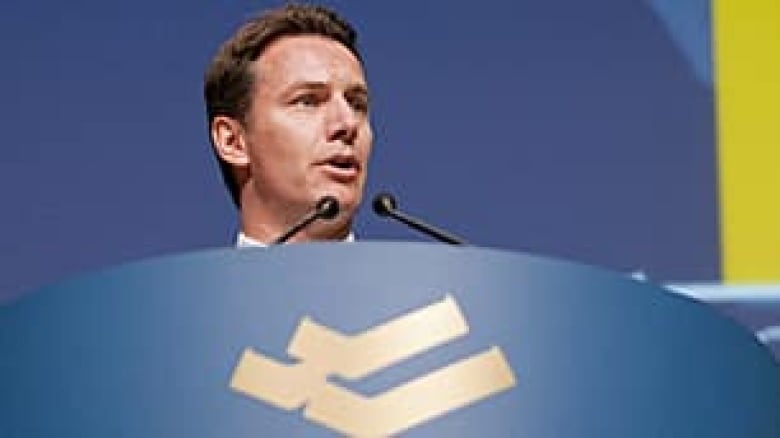Canada's CEO wages recession-proof: study
Canada's top-paid chief executives only have to work until 2:30 p.m. Monday to make the same amount of money the average Canadian will earn for the entire year, a new study suggests.

The "Recession-Proof" report by the Canadian Centre for Policy Alternatives (CCPA) suggests the country's best-paid CEOs made an average of $6.6 million in 2009 during the darkest period of the recession. That compares to the total average Canadian income of $42,988 and the total average minimum wage worker's income of $19,877.
"Canadians may still be feeling the pain from a worldwide economic meltdown caused by reckless financial speculation, but Canada's business elite has preserved its privileged position," CCPA research associate Hugh Mackenzie says in the report, released Monday.
Mackenzie suggests that at this rate, "this handful of elite CEOs pocket the equivalent of the average Canadian wage by 2:30 pm on Jan. 3 — the first working day of the year."
Topping the list of the best earners was Barrick Gold's Aaron Regent, at $24.2 million in 2009. Hunter Harrison at Canadian National Railway Co. garnered $17.3 million and Gerald Schwartz at Onex Corp. made $16.7 million.
The study suggests that even in the worst of the recession, the country's best-paid 100 CEOs earned, on average, 155 times more than Canadians who earned an average income.
Still, CEOs' earnings dropped from the previous year, when they made 174 times the average Canadian, compared to the 155 ratio for 2009. In 2008, CEOs were paid an average of $7.3 million.
But the gap was not always that wide. In 1998, the best-paid CEOs pocketed an average of 104 times more than the average Canadian wage earner, according to the CCPA study.
As well, between 1998 and 2008, the best-paid 100 CEOs' average compensation outpaced inflation by 53 per cent, while the average Canadian income gained four per cent over that period.
Windfall looms
Mackenzie notes that Canada's best-paid 100 CEOs are sitting on previously granted stock options already worth $1.3 billion at the time their companies reported to shareholders in 2009. This is about $2 in deferred pay for every dollar reported as earnings that year.
When these CEOs finally decide to exercise their stock options, Canadians will subsidize that bonus in lost taxes. Stock options are taxed as if they were capital gains, rather than as ordinary income. As a result, nearly a third of CEOs' 2009 reported income — and the entire amount of their capital gains windfall — is taxed at half the rate paid on wage and salary income.
Mackenzie said that tax subsidy is worth an average of $467,000 on their 2009 income, or roughly 10 times the pay of the average Canadian worker.
And when the high earners cash in that $1.3-billion stock option stockpile, the windfall will be supported by a tax subsidy of $360 million, or an average of $3.6 million per top-100 CEO.
"Thanks to a change in corporate reporting introduced in 2008, we only have a conservative statistical estimate of the stock options that make up about one-third of CEOs' 2009 pay. The public will never know how much most of these CEOs actually got paid in 2009," the study said.
The Toronto-based CCPA, founded in 1980, calls itself an independent, non-partisan research institute concerned with issues of social, economic and environmental justice.